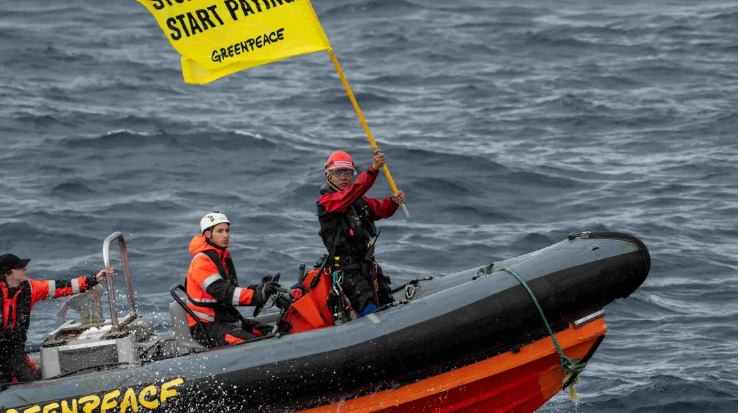Shell, Greenpeace Settle North Sea Protest Lawsuit
In the case between oil company Shell and environmental group Greenpeace, Greenpeace has agreed to donate £300K (US$382K) to the Royal National Lifeboat Institution, without accepting liability or paying money directly to Shell.
Facts
- In the case between oil company Shell and environmental group Greenpeace, Greenpeace has agreed to donate £300K (US$382K) to the Royal National Lifeboat Institution, without accepting liability or paying money directly to Shell.[1][2]
- The case stems from a January 2023 incident in which Greenpeace activists boarded Shell's White Marlin vessel near the Canary Islands, occupying it for 13 days to protest oil drilling.[1][2][3]
- Shell initially sought damages ranging from £705,993 (US$900K), with Greenpeace potentially facing up to $11M in total damages and legal costs.[4][5]
- As part of the agreement, Greenpeace agreed not to protest within 500 meters of three Shell North Sea sites for five years, and a fourth site for 10 years.[2]
- The protest involved four activists using ropes to board the vessel from inflatable boats that pursued the ship at high speed.[3][4]
Sources: [1]BBC News, [2]Barron's, [3]Sky News, [4]Marine Insight and [5]BNN Bloomberg.
Narratives
- Narrative A, as provided by Greenpeace International. This settlement represents a major victory for Greenpeace, showcasing its resilience against SLAPP lawsuits designed to silence criticism. By turning the lawsuit into a PR disaster for Shell and securing funding to fight climate change, Greenpeace has demonstrated the power of public and grassroots support. This success will embolden future actions to hold the fossil fuel industry accountable for its dangerous environmental impact.
- Narrative B, as provided by Robert Yoho. Greenpeace's victory over Shell reflects performative activism rather than genuine environmental progress. Historical links to elite agendas, such as the Rockefeller family's climate narrative, suggest its motives are far from independent. Even its co-founder, Patrick Moore, has criticized the group for abandoning rationality and aligning with controversial climate claims. By perpetuating fear instead of addressing evidence-based solutions, Greenpeace undermines its credibility.







